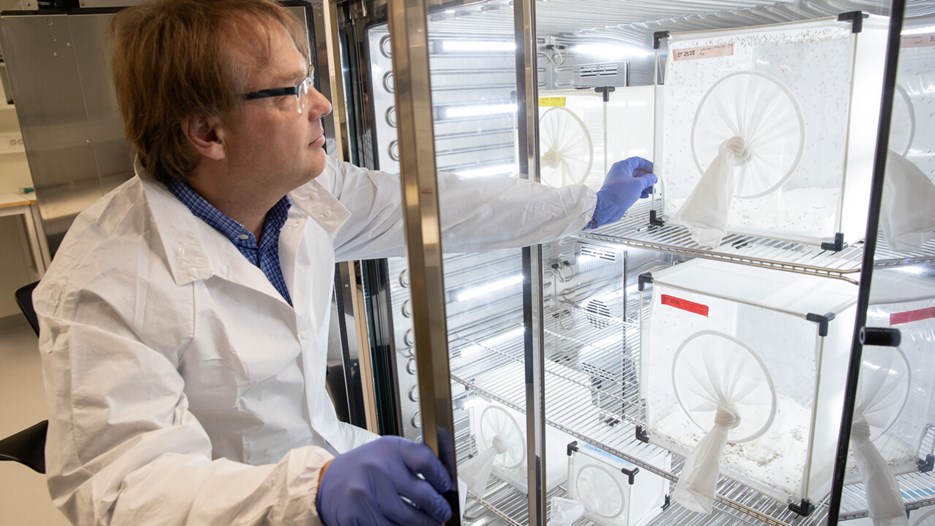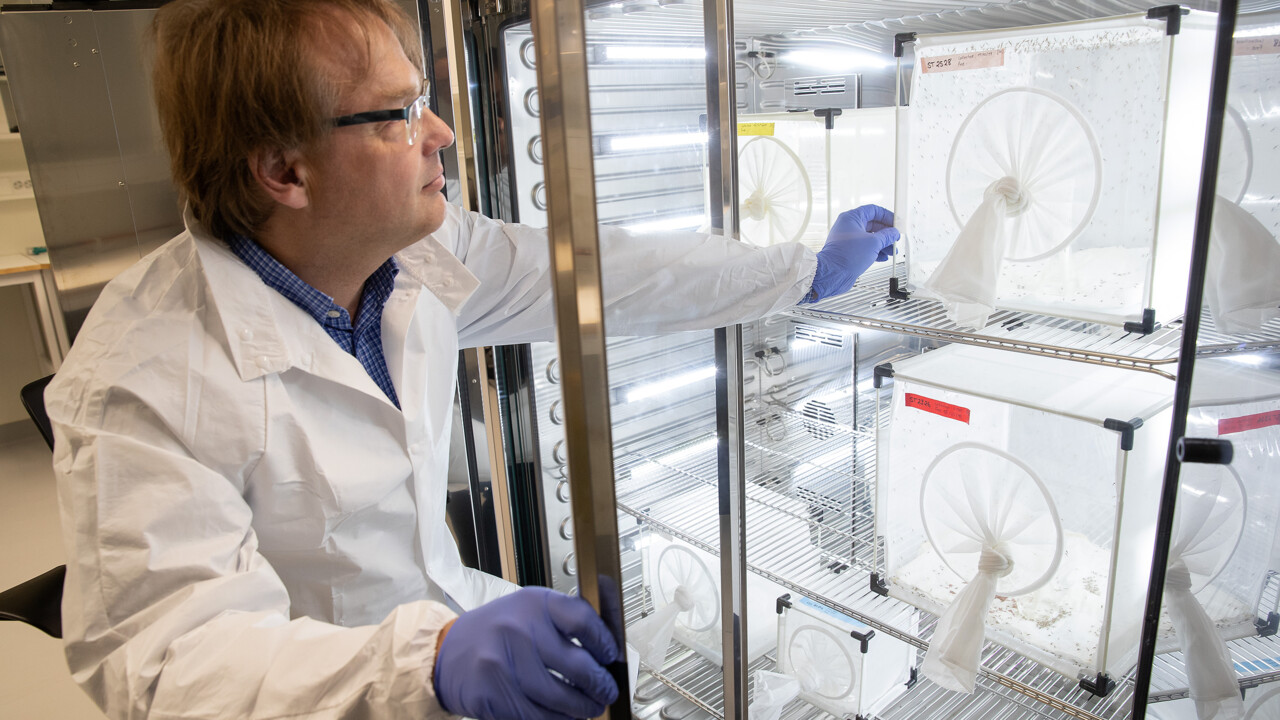– The new grant will enhance microbiological research in Umeå and create new opportunities for expanding collaborations, says Oliver Belker, Director of MIMS.
picture Photographer: Magnus Bergström
MIMS is the Swedish node for molecular medicine within the Partnership for Molecular Medicine, EMBL, and is part of the Nordic EMBL collaboration with the Universities of Helsinki, Oslo and Aarhus.
The partnership between EMBL and Nordic Laboratories focuses on the growing field of life sciences that investigates the molecular basis of disease and explores molecular and genetic therapies.
The laboratory in Umeå focuses on infectious medicine and diseases such as COVID-19, tuberculosis and malaria. Infectious diseases caused by microbes such as viruses, bacteria, fungi, and parasites. These are diseases that are difficult to treat in some cases and cause a large percentage of deaths worldwide because there is often no vaccine against them, while antibiotic resistance means that treating bacterial infections may become ineffective.
MIMS is a leading global environment that gives young researchers the opportunity to conduct world-class infection research, and that deserves the foundation’s support, says Peter Wallenberg Jr., president of the Knut and Alice Wallenberg Foundation.
MIMS recruits international young group leaders and provides them with extensive research resources. One of the best-known ex-MIMS group leaders is Emmanuelle Charpentier who, during her tenure at MIMS in Umeå, discovered the mechanisms behind the CRISPR-Cas system. This discovery led to the development of genetic scissors that allow scientists to edit and alter the DNA of living organisms. For this discovery, Emmanuel Charpentier was awarded the 2020 Nobel Prize in Chemistry with Jennifer Doudna.
Environment generated the Nobel Prize
In order to make progress in molecular medicine, top researchers must collaborate. It is therefore gratifying that with the new grant we can not only enhance microbiological research in Umeå, but also collaborate with researchers and clinics across Sweden and connect them to our northern and European network, says Oliver Bilker, Director of MIMS.

Oliver Belker, director of MIMS, in the lab.
picture Magnus Bergstrom
The added resources will fund new collaborative leadership positions at MIMS but also provide support to clinical infection researchers at Swedish university hospitals, with the aim of promoting clinical infection research nationally and advancing knowledge transfer from basic research to the clinic.
– Kempestiftelsen’s money goes towards new jobs at Umeå University. Supporting research institutions at Norrland universities and MIMS is an environment that generated the Nobel Prize, demonstrating that it is possible to build highly competitive research environments at these universities, says Alice Kempe, Chairman of the Board of Kempestiftelserna.
Funds will also be dedicated to supporting researchers in the field of preclinical infections as the aim is to create a national cohort of young MIMS researchers who will connect early-career cohort leaders from all over Sweden to the EMBL network.
– We are pleased that, together with Kempestiftelserna and the Knut and Alice Wallenberg Foundation, we are making this investment in MIMS, so that Umeå and Sweden can continue to contribute to research and development in an area that is very important internationally, says Hans Adolfsson, Rector of Umeå University.

“Extreme tv maven. Beer fanatic. Friendly bacon fan. Communicator. Wannabe travel expert.”






More Stories
Spring's most popular topics – about barefoot people, GAPS, lymphatic system/self-care, thermal imaging, edibles in nature, medicinal mushrooms, etc.
Cervical cancer elimination project
Key bacteria discovered – protect the intestinal mucus barrier in case of a low-fiber diet